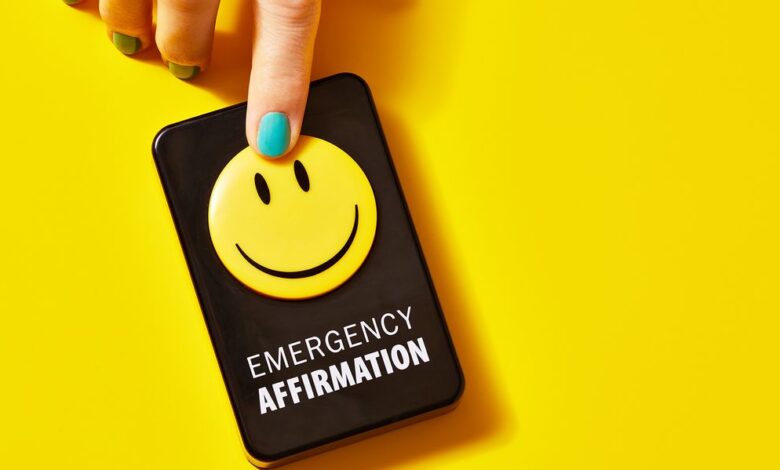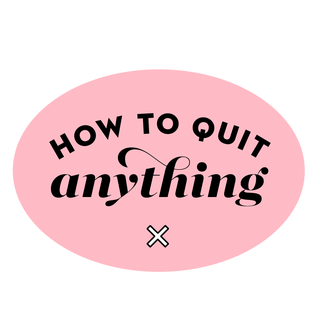How to Stop Being Jealous — Stop Jealous Feelings in a Relationship or Friendship

Am I Jealous? | Causes of Jealousy | Jealousy in Romantic Relationships | 6 Techniques to Stop Jealousy | How to Move Forward
Jealousy can arise in a million different situations and sometimes hits you when you least expect it. Maybe your husband won’t stop joking about his “work wife,” or your girlfriend flirted with the waitress at dinner last night. If you felt a little twinge in your gut and an urge to keep your partner to yourself, let’s get one thing straight: Jealousy is a normal emotion. “I would actually argue that all jealousy is natural,” says Jennifer Bevan, Ph.D., professor of communication at Chapman University in Orange, California. In fact, it’s so natural, Bevan points out, that researchers have studied people around the world and found very few cultures where jealousy isn’t present.
The problem is when it becomes a destructive force. “It’s when it’s not being handled well that it can become what we call ‘morbid jealousy,’ which is when it spirals out of control.” That’s probably the type you wish you didn’t feel.
How do I know if I’m jealous?
Believe us — you’ll know! Maybe you’ve never wanted to read your boyfriend’s texts before and now it’s pretty tempting. Maybe there’s a burning feeling in your chest whenever you see him talk to another woman. Maybe you get cranky whenever your wife tells a funny story about a situation you weren’t present for. Maybe, if you could, you’d clear her calendar so she could devote every bit of her attention to you.
“Researchers who study jealousy are an interdisciplinary group of psychologists, family studies researchers, cultural anthropologists and communication researchers like myself and they mostly agree that we experience it in three ways,” explains Bevan. “First we feel it emotionally; then we experience it cognitively so we think about it and worry and become suspicious; and lastly, we communicate it.”
- Emotionally: Jealousy may start with an uncomfortable feeling such as anger, sadness, pain, surprise, confusion or anxiety. Ugghhh, why is he laughing so hard at that other girl’s corny joke?
- Cognitively: Then, as you start to process it, thoughts can run the gamut. What is this other person bringing to the table for my partner that I can’t? Why doesn’t my significant other flirt like that with me anymore? Do they even love me? When it preoccupies you or causes rumination (turning it over and over again in your mind), that’s when jealousy can start to harm your mental health. “Rumination stresses people out because they end up stuck in cycle with no resolution,” says Erin Wiley, M.A., L.P.C.C., a clinical psychotherapist and the executive director of The Willow Center, a counseling practice in Toledo, Ohio. “Someone who is already struggling with anxiety or depression could be more likely to fall into the habit of ruminating on negative jealous thoughts.” Eventually, it may bleed over into the very relationship you cherish itself.
- It gets communicated: “It doesn’t really impact the relationship per se, until it’s expressed,” says Bevan. And “expressed” doesn’t necessarily mean you telling your partner you’re jealous, although you can. Some of the less productive ways to express it might be that you avoid your partner, try to control whom they spend time with or throw things across the room in exasperation. More positive ways include working through your feelings about the current situation with a therapist or a trusted friend, or your significant other if you can do it in a way that will help, not hurt, your relationship.
What is the main cause of jealousy?
When you’re in a jealous headspace, it may seem like cause of your jealousy is the fact that your girlfriend is acting sketchy, perhaps talking on the phone in the bathroom, hanging out with new friends you’ve never met or being cagey about evening plans. But there’s much more to it than that.
While scientists don’t know the exact reason why humans feel jealous, some say it’s an evolutionary trait we’ve held onto. “I think deep down, we still operate on a lot of animal instincts to partner with someone or have a tribe for protection,” says Wiley. “I think at its core, we genetically have a predisposition to be afraid of things that jeopardize our safety, like things that get in the way of our connection with people in our tribe — our family, our friends and our significant others.” For instance, the new friend your girlfriend has been spending time with could potentially threaten your status as her partner — and the sense of safety and love that come with it.
As essential as it may be to preserve our relationships with people who are important to us, “A lot of times, in our culture, we see jealousy as such a negative thing that we actually don’t want to put that label on it,” says Bevan. She says that when scientists conduct research, they often try to downplay the word “jealousy” because study participants immediately respond with, “Oh, I’m not jealous.” However, jealousy isn’t a bad thing unless it’s being communicated in a way that harms someone or the relationship.
What makes some people more prone to jealous feelings?
Now you’re now probably thinking, ‘Okay, fine, jealousy may be normal, but it doesn’t feel pleasant. Why do I get jealous so easily?’
While certain people seem more prone to jealous feelings, researchers haven’t really found specific personality traits that are linked to jealousy. For example, “self-esteem is something that a lot of people say is related to jealousy, but the jury is still out on that and there are a lot of conflicting research findings,” says Bevan. That said, she notes that “age is actually one that does have a correlation with jealousy. Younger people do tend to be more jealous and as people age and get more settled into their relationships, they tend to be less jealous.”
Jealousy may even stem from how a person is raised. “Our earliest relationships are with our parents and, ideally, if you have parents who are attentive to your emotional needs, you’ll have a healthy attachment,” says Wiley. With a healthy attachment style, you’ll trust your position as girlfriend, boyfriend, partner or spouse is secure and your mind won’t spiral as easily into feelings of jealousy when, say, your significant other makes impromptu after-work plans without you.
“But there are a lot of people who have what we call ‘disorganized attachment’ because they had parents that were either too busy to care for them or distracted by things like poverty, work, alcoholism, self-absorption or narcissism and it leaves them with an insecure attachment,” Wiley adds. People with that insecure attachment style tend to be more anxious about their relationships with others and become jealous if something intrudes or threatens their connections to loved ones.
Is jealousy a sign of love?
Not necessarily. It can feel a little flattering if you find out your partner is jealous — and you might assume their jealousy stems from their love for you. At the same time, if you’re the one feeling jealous, you might think your jealousy means that you really care for the other person.
However, it’s important to remember that while jealousy is a natural emotion that can be felt within a loving relationship, it doesn’t equate to love. Just because a person feels jealous, that doesn’t necessarily mean they feel love. And it certainly doesn’t mean that the more jealous you feel the more you love the person.
It’s also very easy for jealous feelings to turn toxic. “When someone starts trying to control the other’s behavior, what they wear or who they’re with, that is manipulative unhealthy behavior,” says Wiley. Think about it: If you’re jealous because your partner goes out with coworkers a few nights a week, you may think the answer to all your problems is meeting and “approving” the colleagues they’re spending time with or making sure they text you every hour so you know what’s going on. But at the end of the day, you’re going to feel no less anxious. “You cannot manage another person as the means to handling your own anxiety,” says Wiley. “The cycle never ends.” You may love the person and truly believe what you’re doing is going to save your relationship, but it’s not actually a loving act — for you or them — and will only cause you more worry.
Remember: Whether jealousy hurts or helps your relationship depends on how it is expressed.
- If it’s expressed via a constructive conversation between two people, that’s great and will bring you closer.
- If it’s expressed through the aforementioned controlling behaviors or screaming, threatening or violent acts, jealousy is a red flag that the current situation is not a healthy one.
“Jealousy is one of the major reasons for intimate partner violence and one of the major sources of and reasons for stalking, and harassment of current partners and former partners,” explains Bevan. “When it goes into that dark place where we’re communicating it really negatively and destructively that’s when jealousy becomes a problem.”
How to Stop Feeling Jealous
Identify your feelings.
Your instinct might be to immediately try to put a stop to whatever is triggering your jealousy — by shutting down the flirty waitress or bugging your spouse about his long work hours — but the best place to start is in your own head.
“The first step would be managing the jealousy you have — not trying to get rid of it,” says Wiley. “If you are jealous, it’s telling you something and we need to pay attention to the emotions that come up for us because they mean that something needs to be addressed.” In some cases, you may not even want to admit you’re jealous — especially because the emotion is viewed so negatively in our culture — but labeling that emotion can help you figure out a solution. Pay attention not only to the jealousy you’re feeling but other emotions that are tied to it as well (such as frustration, sadness, hurt, fear or overwhelm).
Say it out loud or write it down.
“Holding in emotions, in general, is not really a good thing to do for your health. And holding in jealousy is not a good thing to do for your relationship,” says Bevan. Even if you’re not comfortable bringing it up with your significant other yet, try telling a trusted friend or therapist, writing it in a journal or even typing it in the Notes app (or therapy app!) on your phone.
Try outlining your view of exactly what’s been going on (My wife puts way more effort into her hair/makeup/outfit for work than she used to and goes out a few evenings a week without me.) as well as how you’re feeling about it all. Putting it into words will help you start to think about your jealous feelings in a constructive manner and steer you away from anxious rumination.
Pinpoint the real issue.
“Think about why — what is it about this particular person in this particular situation that’s bothering you?” suggests Bevan. “Try to analyze the situation in a way that helps you to understand the reason why you’re experiencing jealousy.”
Look below the surface of the emotion and figure out what need of yours isn’t being met in this moment. Is it that your significant other is spending more time with someone else than she spends with you? “That might tell you that one of your love languages is quality time and you really need to speak with your partner about creating and crafting specific time where the two of you can be together so you get that need met,” says Wiley. “Jealousy is certainly trying to tell you something and typically it signals deeper underlying issues in the relationship.”
Give your partner a heads up.
Ultimately, a conversation with your partner is often the antidote to jealous feelings. That said, don’t blindside them. “I like to tell people, when they’re going to have a difficult conversation with their significant other, to prep them by telling them what’s coming so they don’t feel like they just got blasted from nowhere,” says Wiley. She suggests something along the lines of, “’Hey, I’m having an emotional issue that involves our relationship and I’d like to talk to you about it.’”
Remember, the conversation is ultimately about your feelings — even if they’re triggered by something your partner did — so keep the focus on your feelings rather than their behavior (or that of a third party). Wiley also recommends asking what time works best for them to chat because if they’re not ready or if they’re in the middle of something, that’s not going to work out well for either of you. “Letting them know that you have an agenda that you feel needs to be addressed and that you would like some of their time is way better than barreling in and saying ‘we have to talk,’” she says.
Find a way to chill out.
Before you address the situation with your partner, do whatever you can — meditate, go for a run, watch a favorite sitcom, put on comfy clothes — to ensure you’re relaxed. “You have to be calm when you start,” says Wiley. “There’s a law of relationship conflict that says the level at which the conflict starts is the level at which the conflict ends. So if you come in a 10, it usually ends at a 10 because people don’t typically naturally calm themselves during a fight — it usually gets more heated.”
Talk to your sweetie.
“Researchers have found that when we actually communicate jealousy in a constructive way and bring it up with our partner, it actually helps you feel more satisfied in your relationship, which I think is amazing,” says Bevan. To do that, keep the focus on your emotions rather than accusations about the other’s behavior. You could try something like, “’When I saw you talking to that other person at the party last night, I felt jealous and was really caught off guard by those feelings.’”
Reassure them that you’re just expressing how you feel and not accusing them of anything. Use it as an opportunity to ask each other questions and voice concerns on both sides so you can come to a mutual understanding.
Dealing with the aftermath:
“A really constructive and positive conversation will probably have both partners feeling good because you know, it’s not a bad thing to find out that your partner is jealous about you,” says Bevan. “That’s a nice thing to know about as long as they’re not telling you that they’re obsessed with you or something, as long as they’re sharing that they had this little moment and that they are bringing it up because they care about you.”
Of course, not all conversations go that well. If yours turns into a shouting match, an offense v. defense scrimmage or game of gaslighting, remind yourself that you’re doing your best. Take some time to yourself to evaluate the relationship and figure out if this is something you can work through or if you’re regularly getting more stress than joy from being together.
“It’s possible that your partner and you aren’t healthy enough individually or as a pair to stay together,” says Wiley. “Extreme jealousy paired with lack of self awareness and/or inability to see something from another’s perspective and validate it may be signs that this relationship is too troubled to last.” You may both be great people, but you shouldn’t have to feel jealous all the time and your partner shouldn’t have to worry that they’re constantly making you feel jealous. At the end of the day, each of your well-beings is more important than hanging on to toxic relationship.
Let It Go! Quitting These Habits and Obstacles Has Never Been Healthier
This content is created and maintained by a third party, and imported onto this page to help users provide their email addresses. You may be able to find more information about this and similar content at piano.io
Source link









